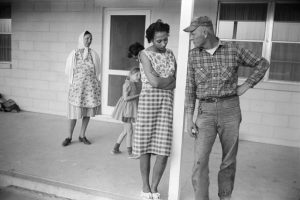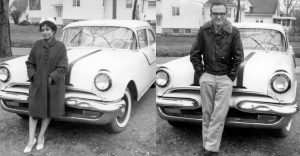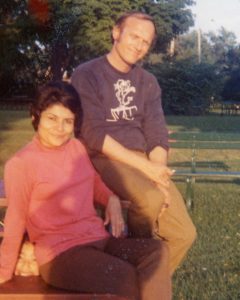
Their name is so perfect that if this was a fictional story, we would mark it down to poor writing. A couple named Loving fighting for the right to be recognized as a married couple. Married in Washington DC, but not allowed to live in their home state of Virginia. Jailed for their crime and banned from their home, they decide to fight back. This is not the 19th century. This is after the sweeping legislation of the Civil Rights Act of 1964. And, still, their love was illegal. It seems like a topic that was resolved so long ago, but it could have been my parents. In fact, it was my wife’s parents.

John Permesang was a young soldier stationed in Panama when Evelia Rodriguez caught his eye. It is not surprising — she was a beautiful, outgoing young woman who made no secret that she hoped someday to marry an American. They were married in Panama in a civil ceremony by an Army Chaplain (and again later, at a church) and, whether they knew it or not, the marriage decided their fate in terms of where they could live. Because it was 1960 and although married by the U.S. government, they were not welcome everywhere in the United States. At the time of the marriage they had about 20 states to avoid, and John once commented that when they arrived in the U.S., the customs agent looked at Evelia and told John that they should go as far north as possible.

Fortunately, home was in Illinois and then in Michigan (Indiana was not a legal option). Only 12 states allowed interracial marriage prior to 1887, and Michigan was one of them. So they started in Chicago, returned to Panama long enough for my wife to be born, and then settled in Holland. They had four children, John worked his way through college and became a teacher, and he and Evie remained together until his death at the age of 58. But just because something is legal does not mean it is accepted. My wife talks of being caught between two cultures, called a “chocolate chip” by some kids. And what looks did John and Evie get when they went shopping at Meijer, a mixed couple in the midst of sameness? When he showed up to a party for teachers with a wife who did not look like him (or most of them), what did people think? What did this couple quietly endure and avoid in their simple desire to share their lives and raise a family?
Director of Public Affairs and Events

